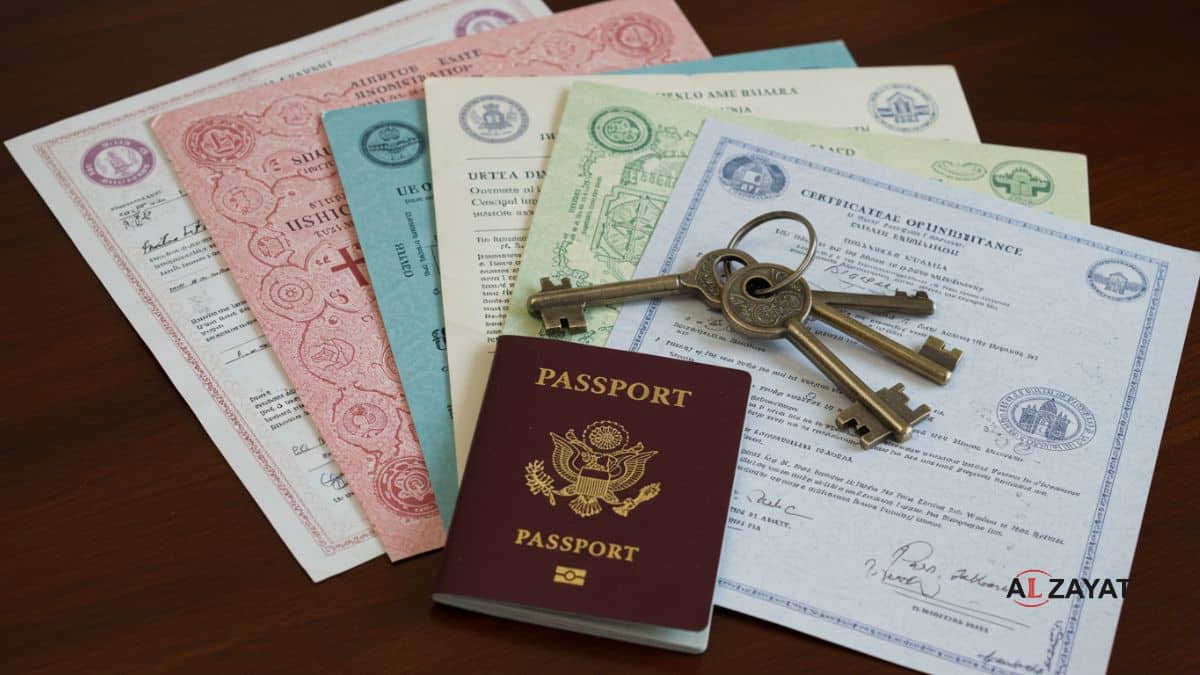International estate administration is the complex legal process of managing and settling the assets of a deceased person when those assets are located in more than one country. In our globalized world, families increasingly face this challenge, discovering that a loved one held real estate in one country and bank accounts in another. This situation creates a daunting web of conflicting legal systems and administrative hurdles that can quickly become overwhelming. Consequently, navigating this process requires specialized legal expertise far beyond standard estate administration.
The Ultimate Guide to International Estate Administration (2025)
At Alzayat Law Firm – Egypt’s First International Law Firm, our private client practice is built on a foundation of expertise in this precise field. As Egypt’s first international law firm, we specialize in serving as the central legal coordinators for complex, multi-jurisdictional estates with a nexus in the Middle East. Our mission is to transform a confusing and stressful process into a clear, manageable, and efficient path to settlement. Contact us today for a confidential consultation.
The Core Challenges of an International Estate Administration Process
Effective management of a cross-border estate begins with a clear understanding of the primary challenges that a standard domestic probate process cannot solve. These are the intricate issues our firm is built to handle.
1. Navigating the “Conflict of Laws” in International estate administration
The single greatest challenge in international estate administration is the “conflict of laws.” This is the legal problem of determining which country’s inheritance laws apply to which assets. The answer is rarely simple, as different legal traditions apply conflicting rules, a core focus of bodies like the Hague Conference on Private International Law. For example:
- Some countries apply the law of the deceased’s **nationality**.
- Others apply the law of the deceased’s **domicile** (permanent home).
- For real estate, almost every country applies the law of the **property’s physical location** (`lex situs`).
2. Forced Heirship vs. Testamentary Freedom in Wills
This is a fundamental clash between legal traditions. A will drafted in a common law country with total freedom (like the UK) may be partially invalid when applied to assets in a civil law country with mandatory inheritance shares (like Egypt or France). Our inheritance lawyers in Egypt specialize in harmonizing these differences.
The Step-by-Step Process of International Estate Administration
While every case is unique, a well-managed international estate administration process follows a clear, strategic path to ensure legal compliance and efficiency across all jurisdictions involved.
Phase 1: Global Estate Strategy and Information Gathering
The first and most critical phase is to build a complete picture of the global estate. This includes identifying all global assets and liabilities, locating and validating any wills (especially in a cross-border estate planning context), and conducting a “conflict of laws” analysis. This initial strategic mapping is essential for a smooth process.
Phase 2: The Coordinated Multi-Jurisdictional Probate Process
This phase involves initiating legal proceedings in the necessary jurisdictions in a coordinated manner. We typically start the primary probate process in the jurisdiction of the deceased’s last domicile. Subsequently, we initiate ancillary probate proceedings in other countries where assets are located, using documents from the primary jurisdiction to have them recognized, a process governed by international agreements and conventions like those documented by UNIDROIT.
Phase 3: Asset Collection, Debt Settlement, and Final Distribution
With legal authority granted by the various courts, the final phase begins. This involves collecting the assets from global institutions, settling all legitimate international debts and taxes, and finally overseeing the legally compliant distribution of the net estate to the rightful heirs.

Unlocking and transferring global assets is the final goal of international estate administration, stamped with the Alzayat Law Firm – Egypt’s First International Law Firm logo.
Frequently Asked Questions (FAQ)
How long does international estate administration take?
Due to its complexity, the process for a cross-border estate is almost always longer than for a domestic one. A well-managed process can often take 18 months to two years, or longer if the estate is particularly complex or involves litigation. Seeking expert legal help early is the best way to ensure the process for your international estate administration is as efficient as possible.
Do I need to travel to Egypt to handle the assets there?
Not necessarily. By granting a Power of Attorney to our firm, you authorize us to act on your behalf for all legal and administrative procedures in Egypt. We can manage the entire process remotely while keeping you fully informed, saving you the time and expense of international travel.
What happens if a will from one country is not valid in another?
This is a very common problem in international estate administration. If a will is invalid in a particular country, the assets in that country will be distributed according to its default “intestacy” laws, which may produce a result the deceased never intended. This is why a “multiple wills” strategy is so critical.

